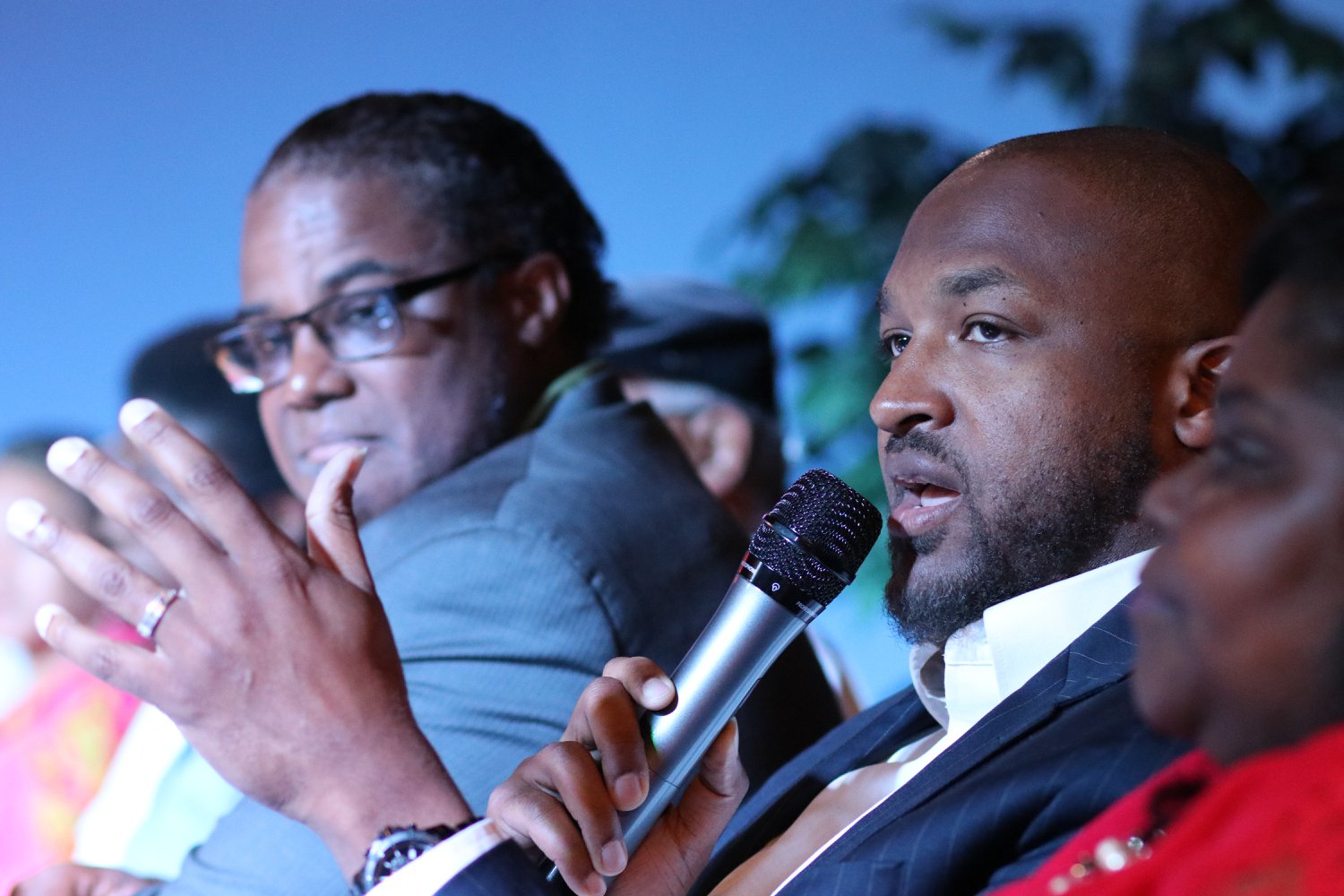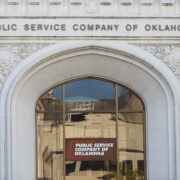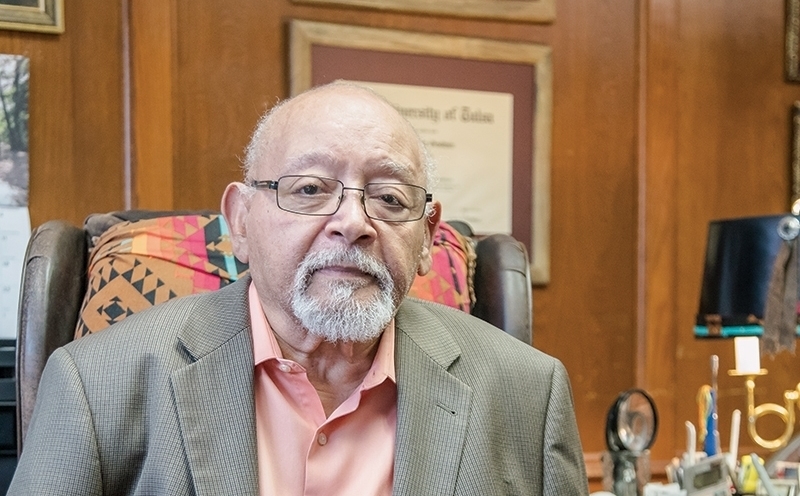
By C.J. Webber-Neal
Eagle Photojournalist
Mayor G. T. Bynum and the 1921 Race Massacre Graves Investigation Public Oversight Committee held their first public meeting tonight outlining the process for the 1921 Race Massacre Graves search from the 1921 Tulsa Race Massacre. The Committee also scheduled its next meeting for Thurs., July 18, 5:30 p.m. at Rudisill Regional Library, 1520 N. Hartford Ave.
Last year, Mayor Bynum announced the City of Tulsa would reexamine the potential of 1921 Race Massacre Graves at three sites that were identified in the 2001 State commissioned report, including: Oaklawn Cemetery, Newblock Park and Rolling Oaks Memorial Gardens, formerly Booker T. Washington Cemetery. The City has established three goals around the reexamination, including: public oversight, historical context and the physical evidence investigation.
For the upcoming meeting in July, the Committee will discuss the logistics for the first phase of the physical evidence investigation, which will be led by the State of Oklahoma Archaeological Survey using ground-penetrating radar. Once the radar process is complete, the Survey team will present their findings to the City of Tulsa and Public Oversight Committee following their investigation and discuss next steps.
If anomalies are detected by the ground penetrating radar, the City of Tulsa, with the help of the Public Oversight Committee, will determine if the second phase of the investigation will continue, which could include seeking assistance from the Oklahoma Office of the Chief Medical Examiner with excavation and cause of death determination. The cause of death determination would be an important step to the investigation as remains will be close to 100 years old and a Spanish Influenza outbreak occurred in Tulsa in 1919 prior to the Race Massacre in 1921.
Mayor Bynum stated, “The goal is always to bring justice to the victims and the family descendants of these victims which are now spread all around the world. The advantage of this being so transparent is that it’s raising awareness all around the world, which helps us try to find descendants who may be living in other countries. We want them to know that we need them to submit DNA so that we can match the victim’s family members. It will be a very lengthy process to do that kind of matching, but I’m confident we will have a lot of folks that we can match up to descendants and finally honor those folks.” Mayor Bynum believes in this being a public process stating, “The primary issue for me is that we acknowledge the truths of this terrible past, without ever giving thought to whether if its difficult politically”.
Councilwoman Vanessa Hall-Harper, of Tulsa’s District 1 believes the task at hand is a difficult work to do. “We have to acknowledge the past in order for us to successfully move forward in the future. And so we have put together this committee who’s going to be working on this issue at hand. We want it to be a spark of justice that will be open and transparent with the community in this entire process. As we said earlier, these meetings are going to be made public; they’re going to be recorded. So everything is documented openly so everyone can really be represented in these processes, even when and if we get to the point where there is a need for an explanation, we want that process to be open. We want this to be a process where our group of citizens is well represented in the community. We have awesome community members who support this process, and I think ultimately at the end of the day this is going to propel into a more positive light to this city and it’s going to allow for some closure.”
Councilwoman Hall-Harper stated, “Also moving forward to the next step this will allow us to address other social issues that we face in the community, to become a better community, and to become a better city for all of Tulsa citizens.”










